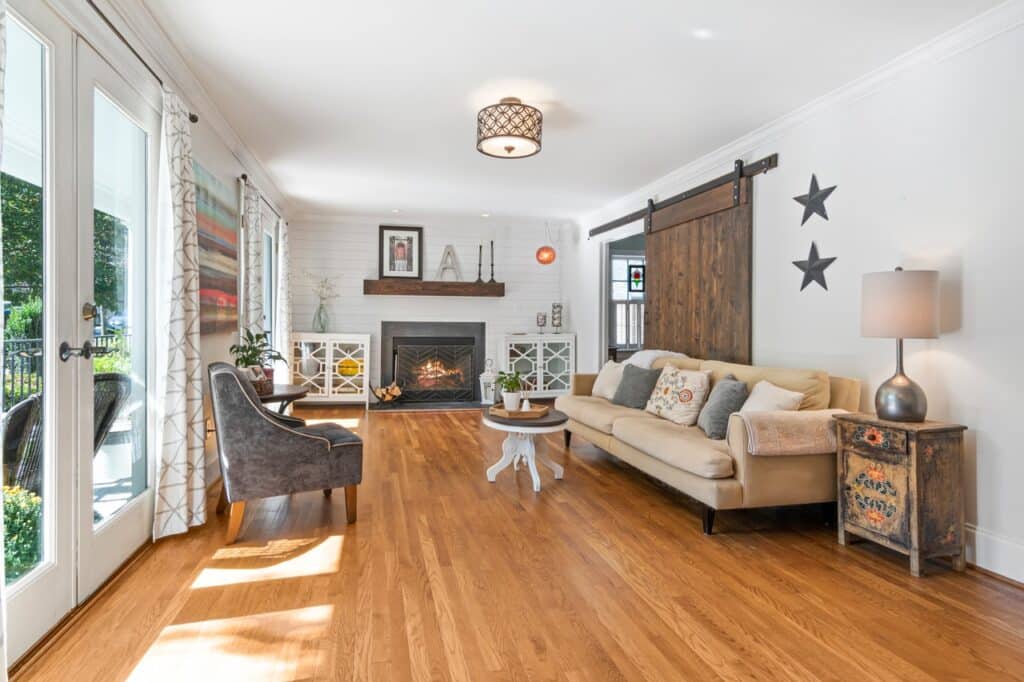Every homeowner wants to feel comfortable in their property. However, over time, you may find that you outgrow your space and want to create more room. Rather than selling up and moving elsewhere, it may be time to build an extension. Doing so can boost your property’s value, adapt your house to your lifestyle, as well as utilise your existing space.
If you’ve decided that an extension is the way forward, it’s time to get organised and start planning your project. Before any work can begin, here is a useful guide on what steps you should follow for adding an extension to your home.

Research, Research, Research
Before you start planning a proposed extension on your property, it’s a good idea to speak to an estate agent in your area first. They can give advice on what kinds of improvements sell well in your area. Even if you have no desire to move at the minute, that’s not to say you won’t change your mind one day. When this day happens, you’ll want to know you spent your money wisely on the extension.
You may find you have a family member or friend who have had an extension done recently. Speaking to them can be a terrific way to get advice, tips, and what to avoid when going through the process yourself. Whether you opt for a single-storey, rear home extension, or double or multi-storey extension, make sure you know exactly what you’re getting yourself into. To protect your extension, you can purchase plastic roof sheets from ClearAmber Shop. Their plastic roof sheets are designed to protect your roof from UV radiation and can bring in more natural light.
Look Into Planning Permission
With planning laws relaxing, this means you’re able to build an 8-metre single-storey extension to the rear of your home without the need of obtaining planning permission. However, if you wish to go double-height, you can only extend by 3 metres. There’s also the option to extend out to the side. Although, this must not be higher than 4 metres and not be wider than half the footprint of your existing property.
If you need extra space, you will need to visit your local planning office to begin the planning process. For those living in a conservation area, you must speak to the planning department before starting any kind of extension.
Understand Building Regulations
Regardless of whether you need to obtain planning permission or not, you have to comply with building regulations. These cover issues like drainage, insulation, and fire safety. There are two routes you can go down to meet building regulations. The first is to submit a Full Plan Submission to your local authority and pay for a building inspector to oversee proceedings.
Alternatively, you can submit a Building Notice that notifies the council you plan to start work in 48 hours, and you’ll comply with regulations. Regarding risks, it’s best to submit a Full Plan. In a nutshell, building regulations are designed to protect your safety, health, and welfare.
Draw Up a Budget
This step must never be overlooked. Whatever type of extension you decide on, you’ll need to ensure you have adequate funds to foot the bill. Even when shopping for quotes from builders and architects, there are unexpected costs that need to be accounted for. The last thing you want is for the project to begin to find you’ve run out of money halfway through. What’s more, you won’t want to find yourself in mountains of debt once work is completed.
To set a budget for a house extension, you should begin by creating a list of everything you’d like included. You should compare quotes item by item and when pricing materials and services, always ensure VAT is included. There are various ways you can finance a house extension. This includes taking out a home improvement loan, using your savings, or remortgaging your home. Other options include paying on a credit card or even asking loved ones for financial help.
Find an Architect
Whether your desire is to build something quirky and unique, or you simply want to add more living space, you’ll need the help of an architect before getting started. To start, you should speak to professional bodies like the CIAT (Chartered Institute of Architectural Technologists) or the RICS (Royal Institution of Chartered Surveyors). Whoever you decide on, make sure they have professional indemnity insurance and relevant qualifications.
While there is no law saying you must use an architect, some homeowners find it easier to have a professional lay out the design. What’s more, using an architect generally means you’ll get a better end result. Bear in mind that their fees normally revolve around the 15% mark. Therefore, factoring this into your budget is key. Make sure you give as many details as possible about what you want from your project, the timescale, and how you intend to pay. Your architect will give you a detailed appointment letter, as well as a contract that must be signed.
Choose a Builder
For any successful home extension project, you’ll need to find professional, trustworthy tradespeople. Of course, there’s always the option to undertake and manage the project yourself. But, if you’re not the best at DIY, you could end up making huge mistakes that could cost you. If you decide to hire builders to carry out the project, it’s a good idea to get personal recommendations. You can check the workmanship yourself. However, it’s best to get several fixed-price quotations first. Doing so makes the comparing process much easier.
Whichever builder you decide on to carry out work, ensure they’ve got the relevant insurance and professional certifications in place first. Never accept the first quote you’re given. And if one quote seems too good to be true, it probably is!
Contact Your Home Insurance Provider
Before starting your home extension project, it’s vital you speak to your home and contents insurance provider. You must let them know of your plans. This is because your extension is likely to increase the rebuild cost of your property. Insurers will bear this in mind when pricing premiums.
When building work commences, this could put your property at risk of damage. Should you not notify your insurer of your plans and disaster strikes, you could find your policy is void. Your insurer will tell you if your current policy covers the new extension.
Move Out
Unless the extension is going to be very low impact or you live on your own, it’s best to move out during the project. There are going to be loud noises and disruptions that can be a nightmare to put up with! Therefore, staying somewhere else until the project is finished is recommended.
If you haven’t got loved ones nearby who’ll put you up, you should book accommodation close by. This means you can go and visit your property throughout the project to ensure everything is running along nicely.
Extending your property is a great way to increase space and add value. There are all kinds of costs and hassles attached to moving house, such as stamp duty and legal fees. When you do your research, you’ll find there are more reasons to stay put and improve your existing property, rather than selling up and moving on.
Before work gets underway, establishing the purpose of your extension, choosing reliable contractors to carry out the project, and having a realistic budget in place will ensure everything runs according to plan.

